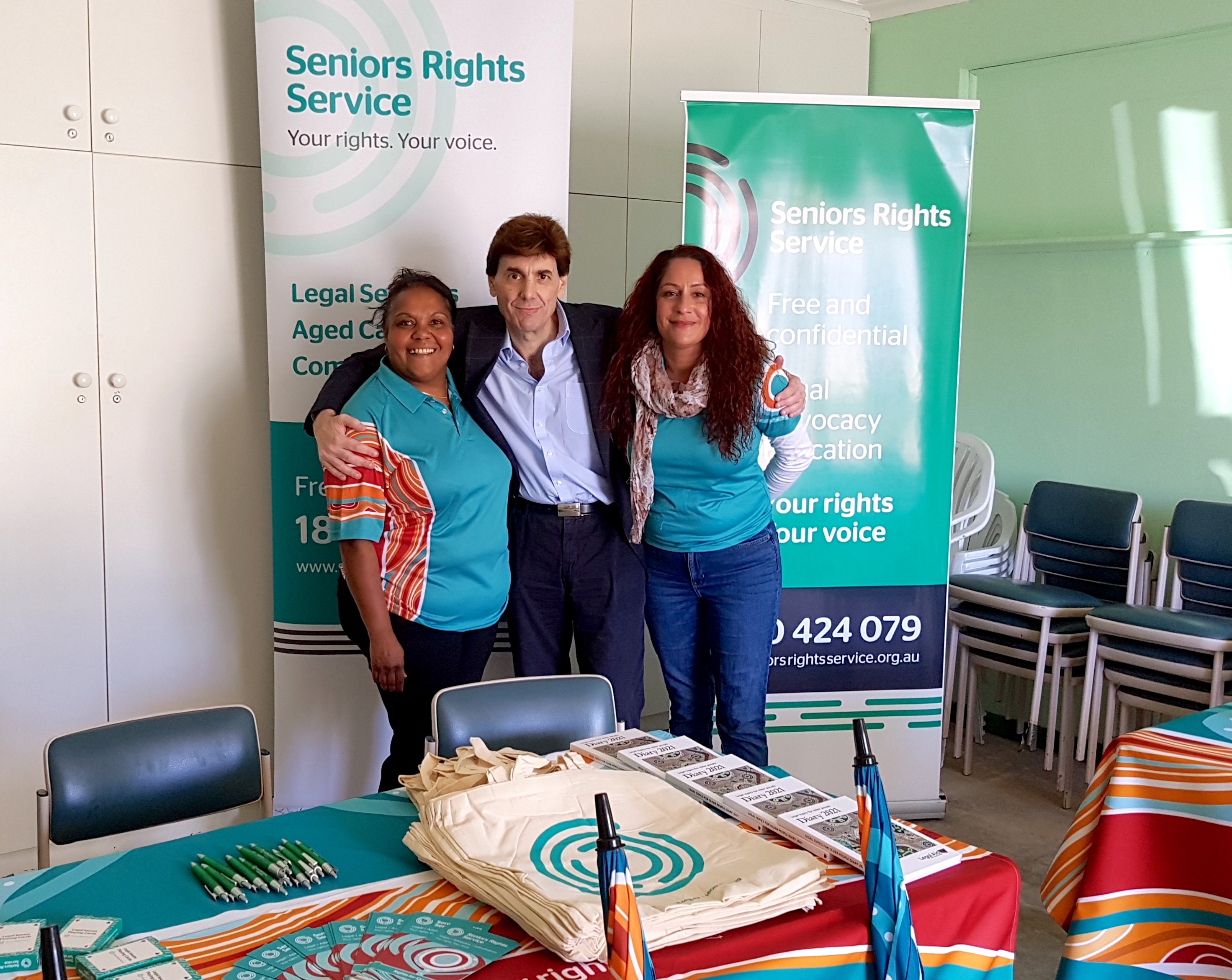Seniors Rights Service has been supporting older people across NSW for over 35 years. Our purpose is to uphold and defend the rights of older people. We provide free legal services, aged care advocacy, information and education. We prioritise supports for First Nations people, and older people from culturally and linguistically diverse backgrounds, the LGBTIQ+ community, and those living in regional and remote locations.
In our legal service, the most common issues we see involve the abuse of rights in aged care and the abuse of older people (especially financial abuse). These experiences inform our focus for law reform.

A human-rights led approach
At the top of our list is a new Aged Care Act that enshrines the human rights of older people, with appropriate penalties for Aged Care providers that fail to recognise and uphold these rights. Such reform would transform the aged care system, and is one of the key legislative changes recommended in the Final Report of the Royal Commission into Aged Care Quality and Safety. Older people must be able to exercise choice in all aspects of their lives and be treated as individuals and citizens. We believe that a human rights-based Aged Care Act that underpins our aged care system is essential. The system must enforce the rights of older people, rather than relying on individuals to assert their rights.
Justice for older people experiencing abuse and neglect
Our next priority involves several law reforms to address the lack of accessible, timely and affordable responses to the abuse of older people by extending the powers of the NSW Civil and Administrative Tribunal (NCAT) in two areas.
Firstly, we see many cases of elder abuse where children or grandchildren return to a parent’s or grandparent’s home to live, a trend on the increase during the COVID-19 pandemic. In some cases we see, children and grandchildren become abusive, controlling the older person's finances or movements, humiliating them, or withholding care. When the older person eventually comes to us, they have suffered years of abuse but do not want to go to the police because of the family ties: they just want the children to leave the house and leave them alone. Standard tenancy and occupancy law does not cover this situation. Eviction is a complex and expensive process. We propose extending NCAT’s powers to allow a quicker and simpler process for evicting unwelcome close family, where an abusive relationship exists. This would assist older people to live in safety and comfort in their own home without having to go through a costly and lengthy court process.
All people deserve to be safe and cared for where they live, including people who live in aged care facilities. However, if older people experience neglect in an aged care facility, there are currently limited avenues through which they can seek justice in a safe, timely and accessible way. To address this, we advocate extending NCAT’s powers to hear, determine and provide financial restitution where an aged care facility has failed to provide the expected and contracted quality of care. Currently there is no remedy other than going through a consumer law pathway, which is costly and takes far too long for most residents in aged care. Extending NCAT’s powers to hear cases and make findings, including financial restitution, would provide greater incentives for services to deliver better quality care and offer an affordable and more timely process for older people to pursue a remedy where they had not received an adequate service.
Ending predatory telemarketing practices
Finally, Seniors Rights Service would like to see cold call telemarketing banned for all financial products. There are significant risks entrenched in this marketing method, which invariably involves elements of undue influence, misrepresentation, and coercion.
The use of high-pressure and unfair sales tactics has far-reaching harmful consequences, particularly for First Nations people and older people. At Seniors Rights Service, we often hear about the unconscionable and coercive sales tactics used by funeral insurance companies, payday lenders and others to sign up older people to unsuitable products. As a result, older people, including Aboriginal people and Elders, are often unaware of or misinformed about what they have purchased and can suffer significant financial loss or debt. This can have far-reaching impacts, compounding legal issues, and causing significant financial hardship, loss of secure housing, and an increase in mental health problems.
A total ban on cold-call telemarketing of financial products would go some way to preventing older people taking out these unsafe, predatory and unsuitable financial products.

Seniors Rights Service also supports community-wide reforms that would help ensure that the rights and values of older people are respected. These include properly addressing coercive control in family violence matters, national consistency for planning ahead instruments and cross jurisdictional applicability, and the impact of technology on older people’s access to services and participation in civil society.

